During the week of November 11, the Tällberg Foundation—in partnership with the Senate of Kenya and the Strathmore Business School—celebrated great leadership and great leaders in the form of the 2019 Tällberg/Eliasson Global Leadership Prize winners. Anne Goldfeld, Saul Griffith and Faustin Linyekula received their awards in Nairobi on November 13th from William Ruto, Kenya’s Deputy President, at a dinner hosted by the Speaker of the Kenyan Senate, Kenneth Lusaka.
The celebratory dinner was attended by participants in Tällberg’s New Thinking for a New World workshop, held during November 12 and 13. Participants included past Prize laureates, jury and board members, and invited guests from twenty countries as well as Kenyan government officials, Senators and Congressmen, academics, business leaders, students and others.

Deputy President of Kenya, William Ruto
In his remarks, Deputy President Ruto captured the mood of evening “I was particularly pleased to realize that the Tällberg Foundation is focused on identifying new leadership, new thinking for a new world. It falls in line with my own belief that the real challenge that society and nations have today is leadership. If we sort out leadership, we can sort out everything else.”
Although guests were serenaded by the enthusiastic harmonies of the Senate’s Parliamentary Choir, the centerpiece of the evening were the three Prize winners:
- Anne Goldfeld, American physician-scientist and humanitarian working at the intersection of scientific discovery and delivery of care for infectious diseases;
- Saul Griffith, Australian scientist, engineer, and entrepreneur focused on urgent, scalable solutions to achieve clean energy, zero-carbon future;
- Faustin Linyekula, Congolese dancer, choreographer, director and storyteller who pushes audiences to understand their deeper history, and the continuing consequences of how they and their countries emerged from the past.
Tällberg board member Tom Cummings interviewed the three leaders on stage to give the audience a sense of the breadth and depth of the laureates, their work and their vision. What emerged was a sense that these leaders, working in different places on dramatically different challenges, have much in common. For example, they all spoke about the need for individuals to take responsibility for their own circumstances, as well as for the solutions needed to overcome challenges. And they all talked with great optimism about overcoming obstacles with imagination, courage and drive.
Saul, talking about his parents’ influence, said they taught him that “we live in the world we create for ourselves.” In that spirit, he emphatically argued that climate change can be solved, that the solutions all exist. “It only depends on how quickly we start and how heroically we work.”
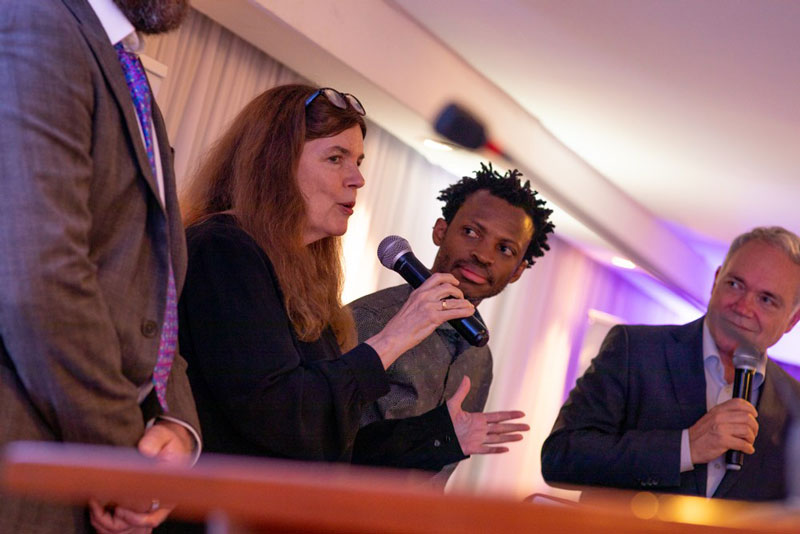
Anne Goldfeld, Faustin Linyekula and Tom Cummings
Faustin’s experiences in the Democratic Republic of the Congo have produced a fascinating perspective: “It is the nature of dictatorship: we are taught not to feel responsible for anything. To the point that, in my country, we expect solutions to come from outside and forget that our lives are in our own hands.” And Anne, with her extensive field experience caring for tuberculosis and HIV patients in South East Asia, the horn of Africa and elsewhere, talked about “putting our faith in the patients themselves and in their social collateral” and then dealing with the issues that mitigate against successful treatment. “Do what you can,” she insisted “and do it with urgency.”
Our laureates were asked about their dreams for Kenya. Dr. Goldfeld said that Kenya could eradicate drug resistant tuberculosis and achieve 100% treatment for HIV, thereby setting the standard for Africa. Saul argued that Kenya has the opportunity to build an inclusive low carbon, state of the art energy system that would demonstrate to Africa and to the world that clean energy at scale is not only possible but is consistent with faster economic growth.
Faustin, who moved to Nairobi as a young man and began to learn his art in Kenya, took a different tack. He urged Kenyan leaders to continue to recognize how important values are in a rapidly changing world. “As a dancer, I rely on my spine as the essential center of all movement. Similarly, we need to rely on our ethical spine, on our values, to make difficult, complex choices, and to move around the barriers that would block us. Without a spine there is no structure, no movement.”
Overall, the celebration, as well as the workshop, was a case study in blending the best from two worlds: Tällberg’s global network of accomplished leaders from many disciplines, whose worldviews are rooted in universal values and global experiences, and Kenyan dynamism, optimism and a deep-seeded be if that the future must be better than the past.
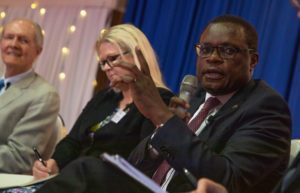
Speaking: Rt. Hon. Kenneth Lusaka, Speaker of the Senate; Kenya
As he welcomed guests to the awards dinner, Tällberg’s Chairman, Alan Stoga, had captured that feeling, “Why are we here? First, the Tällberg Foundation can’t be global if we don’t engage deeply with Africa and Africans. Second, Kenya is a wonderful place to learn about the future of Africa—opportunities as well as challenges. Third, have two fabulous partners, Speaker Kenneth Lusaka and the Kenyan Senate, as well as the Strathmore Business School.”
“Where else would we be?” he concluded.
The Tällberg/Eliasson Global Leadership Prize is made possible by the generous support of the Stavros Niarchos Foundation (SNF)
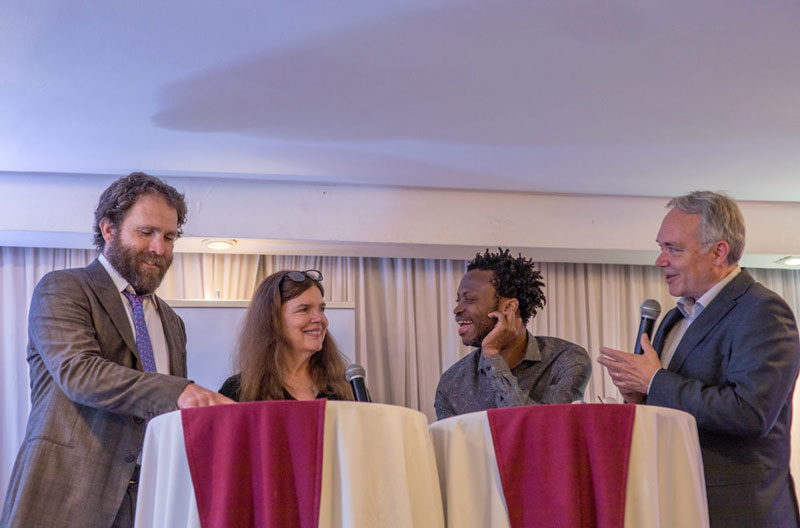


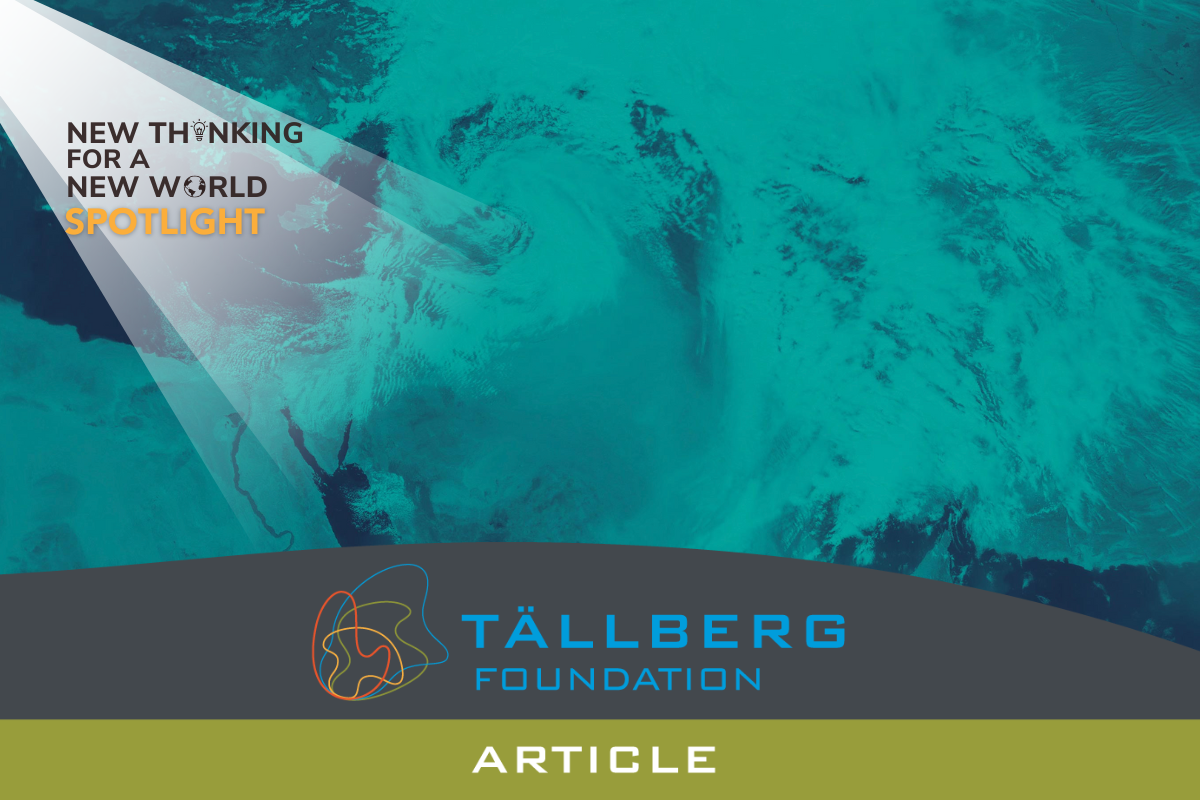
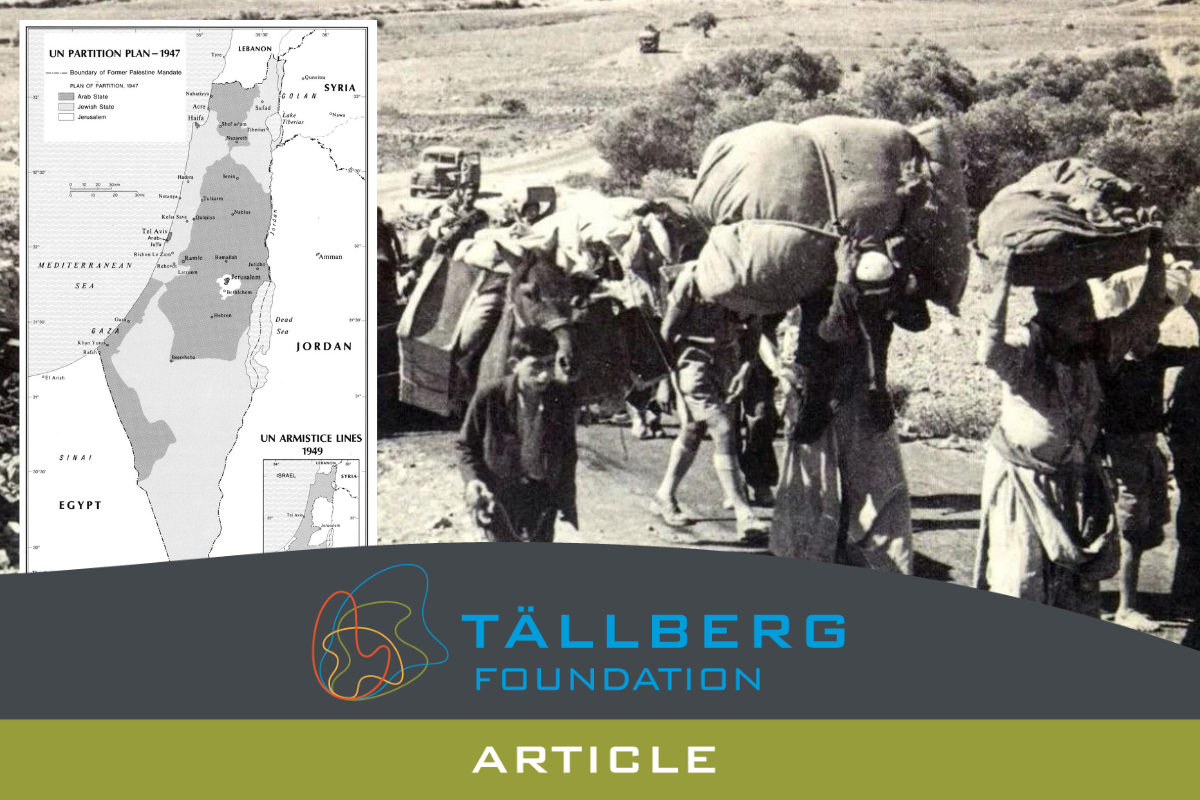
0 Comments